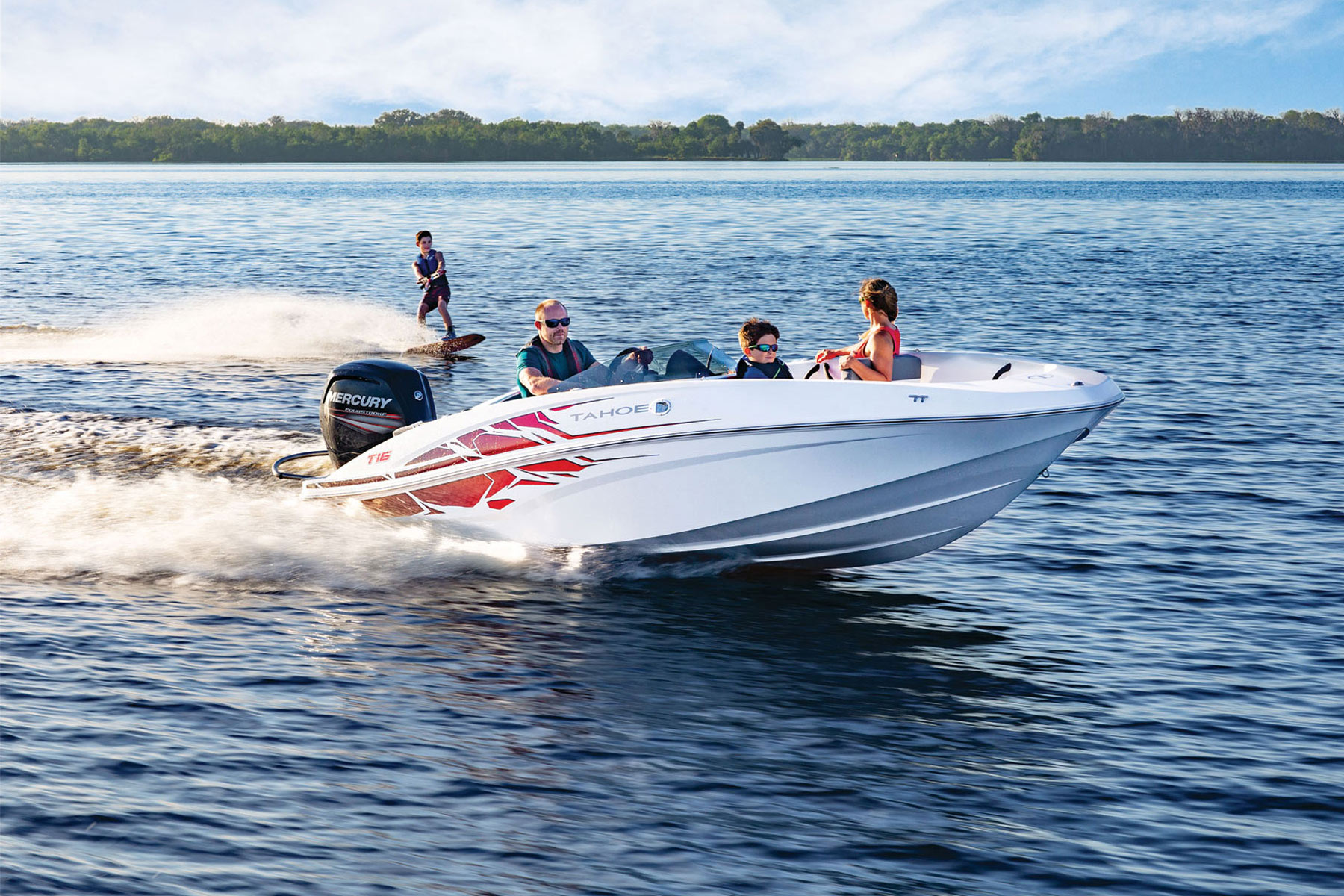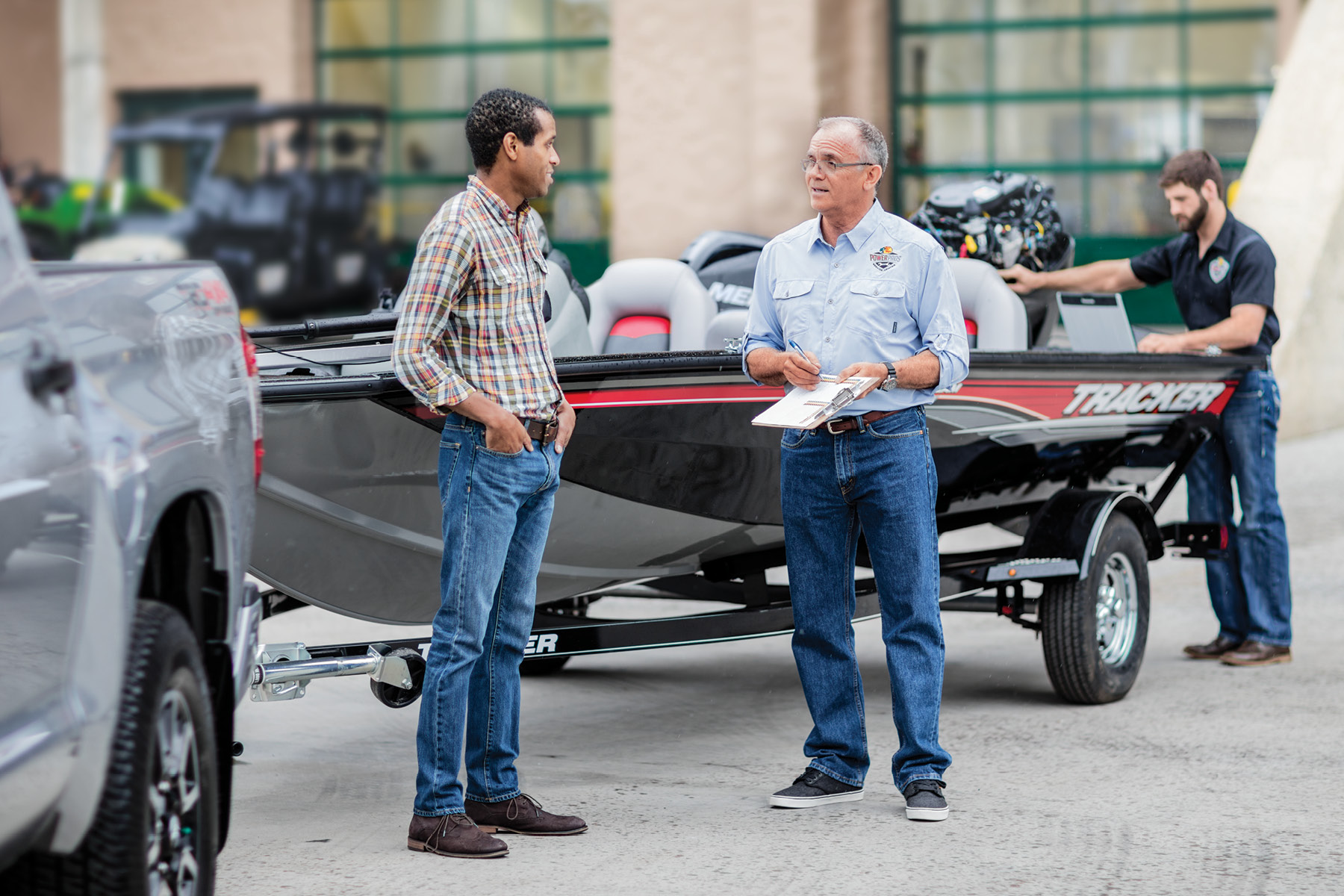Your boating vacation checklist is nearly complete. The family tow vehicle was serviced for the road trip, as was the boat trailer. The service centers gave you the thumbs up that everything was in tip-top shape. All that remains on the list is getting packed and hitting the road, right?
Not quite. There might be permits to acquire and laws to know about when trailering your boat out of state. Knowing what those laws are can help you avoid potential hassles along the way, and even costly citations.
Don’t let the unknown hold you back from adding a new dimension to your boating adventures, though! A benefit of owning a trailered boat is having the freedom to take it anywhere your tow vehicle can go. All it takes is doing some online research about the laws for your route and final destination.
We’re here to help with the following list of tips. We have even thrown in some ideas about how to make the trip safer and more enjoyable.
In some states your boat trailer might need a wide load permit. The good news is that most states do not require a wide-load permit if the width is 8' 6" or less. That covers the width of most boats, including some of the widest pontoons on the market.
Keep in mind that boat trailers can be governed by the same regulations as other types of trailers and towed vehicles. States without laws regarding trailer brakes are Kansas, Kentucky, Massachusetts, Oregon, Missouri, North Dakota and Wyoming. Other states do have laws and those are worth checking before you hitch up and go. Those laws are based on gross weight.
A top priority of state and federal agencies is preventing the spread of invasive species. A growing number of states enforce strict laws against the transport or possession of exotic species. If caught, violators face hefty fines, impoundment of their boats and even jail time. The battle is being waged from coast to coast, and it is your responsibility to know how laws vary by state. That can be a challenge because invasive species laws cover aquatic plants and animals. Some are microscopic in size, while others are difficult to distinguish from native or desirable species. Distinguishing between the good and bad guys is important, and so is knowing how they spread. You might not even know the culprit is hitchhiking on your boat or trailer! Read more in our in-depth feature about invasive species here.
Your boat can take on double duty as overflow packing space, but be careful not to overload. One gallon of gasoline weighs about 6 pounds. So, fill up when you arrive at the final destination. Ditto for groceries. Travel with empty coolers, pack them with gear instead and go shopping when you arrive. Whatever you pack, make sure it’s secured and use a boat cover for protection from prying eyes and the weather. Evenly distribute the load and make sure that no more than 75 percent of its weight is located forward of the axle to avoid fishtailing.
For peace of mind, you can make a trial run ahead of the trip. Pack the boat, hitch it up and drive the rig to a weigh station. Yep, the same type used by long haul truckers to check the weight of their big rigs. Certified public scales are available at most truck stops.
Pull over every couple of hours to perform a walkaround of the trailer. Inspect safety chains, look for loose straps, check the hubs for overheating and look for anything else that seems out of place. Before you get back on the road, you might as well stretch your legs and take a short walk!
If you’re going fishing, you will need a nonresident license, which you can purchase online from the agency websites for the state(s) you will visit. You also need to know if state agencies have reciprocal license agreements on waters they share. Some do, some don’t, meaning you might need licenses for each state. Also, you should research what special permits are required before going fishing, like trout stamps. Fishing regulations vary, too, and you can easily find all the info needed online.
Nothing is worse than a trip to the lake being cut short by a mechanical breakdown of the boat trailer. The sad—but true—fact is your boat spends more time on the trailer than on the water. The good news is that most problems can be avoided by taking precautionary steps at home. Before you hit the road go through this trailering checklist.
If you experience a mechanical problem on the road, there could be help nearby. Bass Pro Shops/Cabela’s Boating Centers have more than 130 locations across North America. All locations offer Urgent Care Diagnosis services, where technicians can provide an initial assessment of your service needs within one business day, as well as an estimate of the time required to get you back on the road or in the water. A quick search on your smartphone will help you find your nearest location on the road.
The American Boating Association (ABA) offers this digest of trailer towing laws by state.


